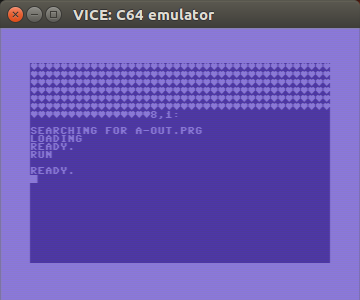2.9 KiB
SixtyPical
Version 0.17. Work-in-progress, everything is subject to change.
SixtyPical is a 6502-like programming language with advanced static analysis.
"6502-like" means that it has similar restrictions as programming in 6502 assembly (e.g. the programmer must choose the registers that values will be stored in) and is concomitantly easy for a compiler to translate it to 6502 machine language code.
"Advanced static analysis" includes abstract interpretation, where we go through the program step by step, tracking not just the changes that happen during a specific execution of the program, but sets of changes that could possibly happen in any run of the program. This lets us determine that certain things can never happen, which we can then formulate as safety checks.
In practice, this means it catches things like
- you forgot to clear carry before adding something to the accumulator
- a subroutine that you call trashes a register you thought was preserved
- you tried to read or write a byte beyond the end of a byte array
- you tried to write the address of something that was not a routine, to a jump vector
and suchlike. It also provides some convenient operations based on machine-language programming idioms, such as
- copying values from one register to another (via a third register when there are no underlying instructions that directly support it); this includes 16-bit values, which are copied in two steps
- explicit tail calls
- indirect subroutine calls
The reference implementation can analyze and compile SixtyPical programs to 6502 machine code.
Quick Start
If you have the VICE emulator installed, from this directory, you can run
./loadngo.sh c64 eg/c64/hearts.60p
and it will compile the hearts.60p source code and
automatically start it in the x64 emulator, and you should see:
You can try the loadngo.sh script on other sources in the eg directory
tree, which contains more extensive examples, including an entire
game(-like program); see eg/README.md for a listing.
Documentation
- Design Goals
- SixtyPical specification
- SixtyPical revision history
- Literate test suite for SixtyPical syntax
- Literate test suite for SixtyPical analysis
- Literate test suite for SixtyPical compilation
- Literate test suite for SixtyPical fallthru optimization
- 6502 Opcodes used/not used in SixtyPical
- Output formats supported by
sixtypical - TODO
